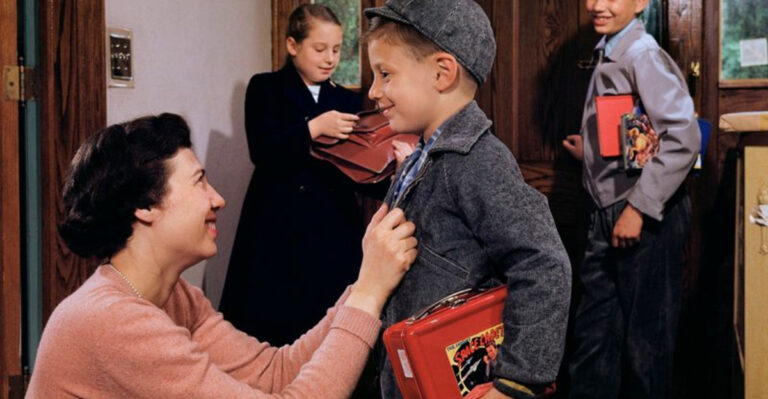32 Heartbreaking but True Reasons Adult Children Cut Ties with Their Parents
Family estrangement is a painful reality many face. It’s a topic wrapped in stigma, often misunderstood by those who haven’t experienced it. Cortar los lazos con los padres es desgarrador, pero a veces parece la única opción que queda.
Esta decisión, aunque drástica, es a menudo la culminación de años de intentos to make things work. Let’s delve into the sad but true reasons why adult children might choose to walk away from their parents.
1. Crianza tóxica o abusiva

Growing up in a toxic or abusive environment is a haunting experience. Whether it’s physical harm or emotional scars, the impact lingers long into adulthood. For many, escaping this cycle of abuse feels like freedom.
Imagine living in a space where harsh words and actions are the norm rather than the exception. It’s like walking on eggshells, never knowing when the next storm will hit.
This type of upbringing often leaves children in survival mode, unable to find peace until they distance themselves. Decades of this can lead an adult child to make the hard choice to cut ties.
It’s not about harboring resentment; it’s about self-preservation. Breaking away is their way of finding a path to healing.
These adults often seek therapy or communities where they can share and heal. They work on redefining relationships, learning what healthy boundaries are. By cutting ties, they’re not erasing the past but choosing a healthier future.
It’s a difficult journey, filled with mixed emotions, but one that often leads to personal growth and healing.
2. Padres narcisistas

Los padres narcisistas pueden crear un ambiente agotador where manipulation and gaslighting are common. It’s like living in a house of mirrors where reality is distorted to suit one person’s ego. Imagine constantly doubting yourself because your parent twists every situation to make you feel at fault.
These parents often undermine their children’s achievements, leaving them feeling inadequate. It’s emotionally exhausting to constantly seek validation from someone who’s only concerned about their own image.
Con el tiempo, esta dinámica tóxica puede empujar a los hijos adultos a romper los lazos, al darse cuenta de que merecen relaciones basadas en el respeto y la comprensión mutua.
Cutting ties with a narcissistic parent is a step towards reclaiming one’s life. It’s about establishing a reality where they can thrive without being overshadowed by someone else’s needs. The journey is challenging, often requiring support from therapy or peer groups, but it leads to a healthier, more authentic existence.
3. Negativa a respetar los límites

Imagine setting boundaries, only to have them repeatedly crossed by the people who should respect them the most. This lack of respect can feel suffocating. Parents who refuse to honor their adult children’s boundaries can create a relationship filled with tension and frustration.
Boundaries are often viewed as a sign of disrespect by parents who believe they have a right to be involved in every aspect of their child’s life. This leaves the adult child feeling trapped, as though their autonomy isn’t recognized. It’s a constant battle between wanting a relationship and needing space to grow independently.
Eventually, the only solution might be to cut ties. This isn’t an easy decision but becomes necessary for self-respect and mental health. By choosing themselves, these adult children are saying, “I matter too.” It’s a step towards finding peace and fostering relationships that honor their boundaries.
4. Favoritismo entre hermanos
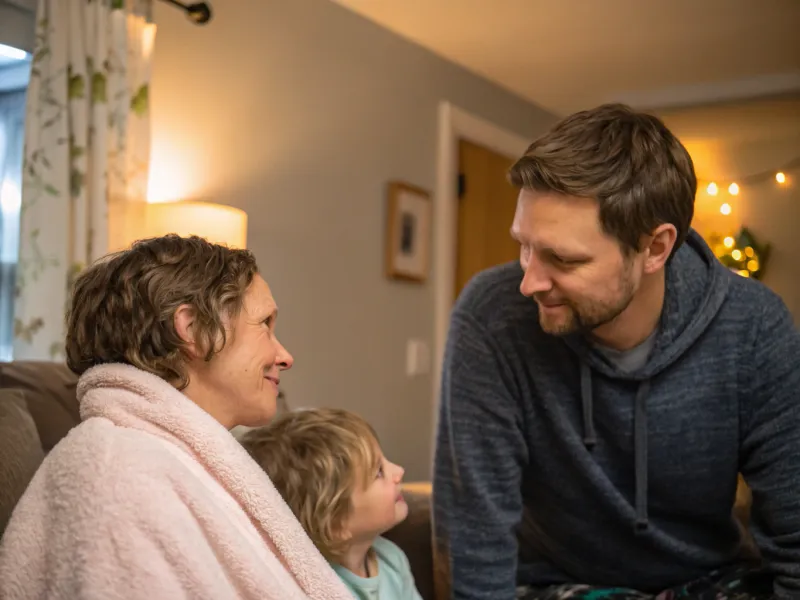
El favoritismo es un asesino silencioso de las relaciones entre hermanos y a menudo pone a prueba el vínculo padre-hijo. Imagínate crecer sintiéndote constantemente como el hijo menor, viendo cómo tu hermano recibe todos los elogios y la atención. Este desequilibrio puede fomentar el resentimiento y sentimientos de inadecuación que persisten en la edad adulta.
Parents may not even realize the depth of harm favoritism causes. It’s not just about hurt feelings; it’s about shaping a child’s self-worth. For the overlooked child, every family gathering becomes a reminder of their perceived shortcomings. Over time, this emotional toll can lead them to distance themselves to protect their own well-being.
Choosing to cut ties isn’t about jealousy; it’s about healing. It’s a step towards finding environments where they’re valued for who they are, not compared to others. This involves soul-searching and support from those who understand the nuanced pain of favoritism.
5. Trauma infantil no resuelto

Los traumas infantiles pueden dejar cicatrices profundas y dolorosas que afectan a las relaciones hasta la edad adulta. Imagina que llevas a cuestas una mochila llena de dolor no resuelto que se hace más pesada con cada interacción familiar.
Los padres que ignoran o niegan este trauma sólo exacerban el problema, dejando a sus hijos sintiéndose invalidados y solos.
The constant denial of these experiences can feel like gaslighting, where the child questions their own memories and emotions. It’s a lonely place to be, yearning for acknowledgment but receiving silence or skepticism instead.
La falta de resolución puede llevar a los hijos adultos a buscar la distancia, no por despecho sino por necesidad de sanar.
Cutting ties allows them to unpack their baggage without the added weight of parental denial. It’s about seeking spaces that support their healing journey. This path may lead them through therapy or support groups where their experiences are validated and they can work towards understanding and healing.
6. Falta de apoyo emocional

Crecer sin apoyo emocional es como navegar por la vida sin una red de seguridad. Imagínese buscar consuelo y descubrir constantemente que las personas que deberían apoyarle emocionalmente no están disponibles. Los padres emocionalmente distantes dejan a sus hijos aislados, fomentando un vacío emocional.
This lack of support doesn’t just hurt during childhood but ripples into adulthood, affecting how these individuals form relationships. They might struggle with trust and vulnerability, always anticipating that they’ll be left to fend for themselves. It’s a profound loneliness that’s hard to shake off.
Choosing to cut ties can be a way for adult children to seek healthier connections elsewhere. It’s about finding relationships where they feel seen and valued. It’s about self-discovery, learning to provide for their emotional needs independently or finding communities that offer the support they lacked growing up.
7. Enmeshment
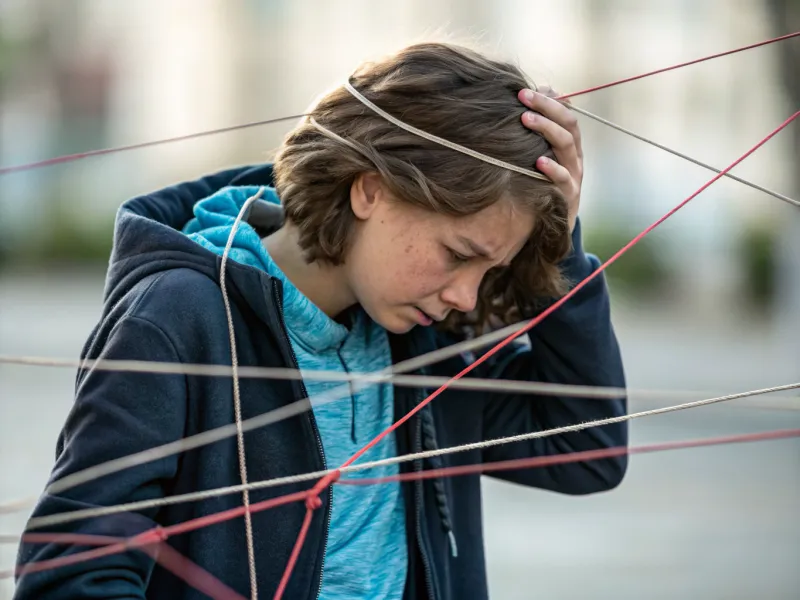
Enmeshment is like living in a web of constant intrusion and control. Imagine not being able to make decisions without feeling guilty or fearful of a parent’s reaction. This lack of personal boundaries creates a stifling environment where an adult child might feel trapped.
Parents who enmesh their children often do so under the guise of love and care, but it’s a form of control that denies individuality. It’s like being an extension of their will, never truly being seen as an independent person. Over time, this can erode self-esteem and hinder personal growth.
Breaking free from enmeshment often means cutting ties to reclaim one’s life. It’s about establishing boundaries that were never allowed before, and finding one’s own voice. This is a courageous step towards autonomy and self-discovery, allowing the adult child to finally breathe freely.
8. Adicción de los padres

La adicción de los padres es un reto desgarrador que deja secuelas duraderas. Imagínese crecer en un mundo de caos donde la imprevisibilidad es la única constante. Los padres que luchan contra la adicción suelen crear un entorno turbulento lleno de promesas incumplidas y montañas rusas emocionales.
El abandono emocional y a veces físico que acompaña a la adicción puede empujar a los niños a crecer demasiado deprisa, asumiendo responsabilidades de adultos a una edad temprana. Este entorno fomenta sentimientos de inseguridad y ansiedad que perduran en la edad adulta. Muchos hijos adultos se encuentran en un estado continuo de gestión de crisis.
Choosing to cut ties with a parent struggling with addiction is a painful but sometimes necessary choice for self-preservation. It’s about stepping out of the chaos to find stability and peace. This decision goes hand-in-hand with seeking therapy and support groups that understand the complexities and pain of loving someone with an addiction.
9. Críticas repetidas y menosprecio

Críticas reiteradas y menosprecio can erode one’s sense of self over time. Imagine living with a constant voice in your ear that questions your worth and abilities. Parents who consistently criticize and belittle their children plant seeds of doubt and insecurity.
This behavior can create a toxic environment where love feels conditional and approval is scarce. Adult children carry these voices into every aspect of their life, doubting themselves in personal and professional arenas. It’s an exhausting cycle of trying to prove oneself, yet never feeling good enough.
Cutting ties becomes a way to silence those destructive voices. It’s about seeking spaces where they’re celebrated for who they are, unconditionally. This path involves self-discovery, learning to replace critical voices with supportive and loving inner dialogue. It’s a journey towards self-acceptance and nurturing healthier relationships.
10. Dinámicas familiares tóxicas

Toxic family dynamics, such as scapegoating and triangulation, can create a battleground instead of a home. Imagine being pitted against siblings or feeling like the family’s perpetual black sheep. These dynamics are emotionally draining, leaving little room for peace or authenticity.
En las familias tóxicas, los roles suelen estar rígidamente asignados, y salirse de ellos puede provocar conflictos. El chivo expiatorio, por ejemplo, puede asumir toda la culpa para mantener la paz, mientras que el hijo predilecto puede luchar con expectativas poco realistas. Estos roles pueden causar un profundo resentimiento e insatisfacción.
Choosing to cut ties is about breaking free from these damaging roles. It’s a declaration that they deserve a life free from manipulation and blame. It’s about introspection and therapy, learning to build relationships based on equality and mutual respect, far from the toxicity they once knew.
11. No reconocer los cambios vitales

Los cambios importantes en la vida suelen requerir el apoyo y el reconocimiento de la familia. Cuando los padres desestiman o restan importancia a acontecimientos significativos como cambios profesionales, mudanzas o hitos personales, pueden provocar sentimientos de alienación.
El reconocimiento de estos cambios es vital para la validación y el apoyo. La falta de reconocimiento puede llevar al hijo adulto a sentir que sus decisiones vitales son insignificantes a los ojos de sus padres.
Los padres pueden salvar esta distancia celebrando y reconociendo estos momentos. Interesarse activamente por esos cambios ayuda a reforzar los vínculos y demuestra amor y aceptación incondicionales.
12. Diferencias religiosas o ideológicas

Religious or ideological differences can create significant rifts between parents and their adult children. Imagine exploring new beliefs or questioning old ones, only to be met with hostility or judgment from those you love. It’s a conflict between personal growth and familial expectations.
For some families, religion or ideology is more than belief—it’s identity. When an adult child diverges from these beliefs, it can feel like a betrayal. This creates an environment where acceptance is conditional, based on conformity rather than individuality. Over time, this pressure can drive a wedge between parent and child.
Choosing to cut ties is often a last resort, a way to honor their personal truth while seeking environments that respect diverse perspectives. It’s a journey towards finding spaces that celebrate diversity of thought, where they can grow without fear of judgment or rejection. It leads to building supportive communities that align with their values.
13. Abuso o manipulación financiera

El abuso financiero o la manipulación pueden erosionar la confianza y dejar cicatrices duraderas. Imagínese que no le tratan como a un miembro querido de la familia, sino como a un recurso financiero o un peón. Los padres que manipulan económicamente a menudo difuminan la línea que separa el apoyo del control.
This dynamic might involve coercion for monetary support, unfair inheritance practices, or using financial dependence to maintain leverage. It’s a subtle but powerful form of control that can leave adult children feeling trapped and devalued. Over time, this manipulation can poison the relationship beyond repair.
Choosing to cut ties is a step towards financial and emotional independence. It’s about reclaiming autonomy and building boundaries that protect their well-being. It’s financial education, legal advice, and support from groups that understand the complexities of familial financial abuse.
14. Culpabilización y chantaje emocional

Guilt-tripping and emotional blackmail are subtle yet powerful tools of control. Imagine every interaction laced with reminders of what you owe your parents or how much they’ve sacrificed. It’s a constant balancing act between love and obligation, leaving little room for genuine connection.
Parents who employ these tactics often believe they’re acting out of love, yet it’s a coercive love that demands compliance. The emotional toll can be overwhelming, leaving adult children feeling forever indebted and manipulated. Over time, this dynamic can erode self-worth and autonomy.
Cutting ties becomes a path to reclaiming one’s life and self-identity. It’s about finding relationships where love is given freely, without strings attached. It involves therapy to unpack the emotional manipulation and rebuild self-esteem, allowing them to form healthier, more balanced connections.
15. Desestimación de las luchas por la salud mental

Parents dismissing mental health struggles can deepen the anguish of those seeking support. Imagine reaching out for help, only to hear dismissive comments or advice to “snap out of it.” It’s a denial of your reality, making you feel unseen and misunderstood.
Mental health struggles are legitimate and require understanding and support. Parents who deny these struggles often do so out of ignorance or stigma, not realizing the harm they’re causing. This dismissal can lead to feelings of shame, exacerbating the issues instead of alleviating them.
Cortar lazos puede ser una forma de dar prioridad a la salud mental, permitiendo al individuo buscar entornos que ofrezcan comprensión y apoyo. Esto incluye encontrar comunidades o terapeutas que validen sus experiencias y les ayuden a construir una red de apoyo genuino, fomentando la curación y la aceptación.
16. Negativa a disculparse

A refusal to apologize can stall healing and reconciliation. Imagine waiting for years to hear an acknowledgment of past hurt, only to be met with stubborn silence. Apologies are powerful—offering validation and a path to healing. Without them, wounds remain open.
Los padres que se niegan a disculparse suelen hacerlo para mantener el poder o evitar la vulnerabilidad. Puede que teman que admitir su culpa socave su autoridad o abra viejas heridas. Para el hijo adulto, esta falta de responsabilidad puede sentirse como una negación de su dolor y sus experiencias.
Cutting ties may become a necessary step when apologies aren’t forthcoming. It’s about seeking closure and healing on one’s terms, without waiting for validation that may never come. It involves personal reflection and therapy to process unresolved issues, fostering personal growth and acceptance.
17. Alienación parental

Parental alienation is a destructive force that drives wedges between family members. Imagine being caught in the middle of parental conflicts, feeling pressured to choose sides. It’s a manipulation that seeks to undermine one parent to favor another, leaving children torn.
Esta táctica puede causar un profundo malestar emocional, creando conflictos de lealtad y problemas de confianza. El niño se convierte en un peón en las disputas paternas, lo que puede mermar su capacidad para establecer relaciones sanas. La confusión emocional suele prolongarse hasta la edad adulta, afectando a su percepción de la familia y la confianza.
Cutting ties is sometimes a necessary step to escape this toxic dynamic. It’s about reclaiming one’s sense of identity and loyalty, free from manipulation. This decision involves seeking therapy to untangle the web of alienation, building a foundation of trust and self-awareness.
18. Comportamientos autoritarios y controladores

Overbearing and controlling behaviors can stifle personal growth and independence. Imagine every decision scrutinized and second-guessed by a parent who refuses to let go. It’s like living under a microscope, where autonomy is a foreign concept.
Parents who exhibit these behaviors often do so out of fear or a desire to protect, not realizing how it limits their child’s development. This constant oversight can lead to feelings of suffocation and resentment. Adult children may find themselves struggling to establish their own identities.
Choosing to cut ties can be a way to break free from these constraints. It’s about forging a path of self-discovery and learning to trust one’s own judgment. It’s setting firm boundaries and finding supportive environments that encourage personal growth and independence.
19. Drama y caos crónicos

Vivir en medio de un drama y un caos crónicos puede ser agotador y desestabilizador. Imagine que cada reunión familiar se convierte en un campo de batalla, donde la paz es un lujo poco frecuente. Este estado constante de agitación deja poco espacio para la tranquilidad o el crecimiento personal.
In such environments, drama becomes the norm, overshadowing genuine connection and happiness. It’s emotionally draining to be caught in cycles of conflict, where calm moments are fleeting and unpredictable. Over time, this chaotic atmosphere can erode mental and emotional well-being.
Cutting ties is sometimes a necessary step towards finding peace and stability. It’s about creating a life where drama isn’t the main feature, but an anomaly. This involves seeking therapy to process the impact of chronic chaos and build a foundation of calm and resilience in their daily lives.
20. Familia extensa tóxica

Navigating toxic extended family relationships can be a minefield of emotional turmoil. Imagine family gatherings filled with judgmental stares and whispered criticisms. It’s like stepping into a space where every move is scrutinized and criticized, leaving one feeling constantly on edge.
Los padres que insisten en mantener estos vínculos tóxicos suelen hacerlo por tradición u obligación, sin darse cuenta del daño que causan. Esta presión puede dejar a los hijos adultos atrapados en un ciclo de negatividad y ansiedad, incapaces de escapar de la toxicidad.
Choosing to cut ties is about seeking healthier family dynamics and finding peace away from judgment. It’s a courageous step towards building a network of supportive relationships, whether they’re chosen family or friends who provide unconditional love and acceptance.
It involves setting boundaries and prioritizing one’s mental and emotional health.
21. Expectativas poco realistas

Expectativas poco realistas can create a heavy burden that strains parent-child relationships. Imagine feeling pressured to live up to dreams that aren’t your own. Parents who impose their aspirations onto their children often do so with good intentions but fail to see the individuality of their child.
This pressure can lead to feelings of inadequacy and a constant struggle for approval. It’s exhausting to navigate life under the shadow of someone else’s expectations, where personal desires and goals are sidelined. Over time, this dynamic can lead to resentment and a desire for independence.
Cutting ties can be a way to explore one’s own path without the weight of imposed expectations. It’s about pursuing dreams that align with personal passions and values. It’s about introspection and finding communities that encourage authenticity and self-discovery, free from external pressures.
22. Falta de esfuerzo en la relación
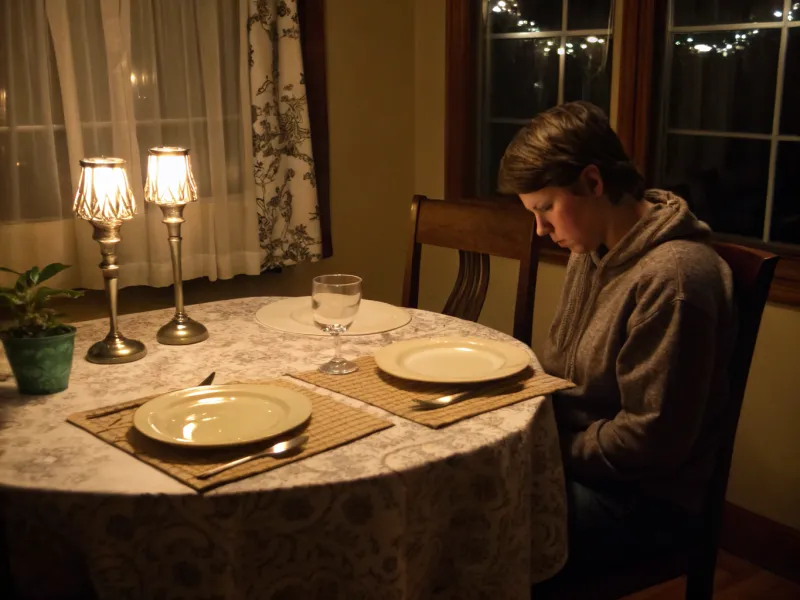
A lack of effort in the relationship can create feelings of abandonment and isolation. Imagine reaching out repeatedly, only to be met with silence or indifference. Parents who don’t put in the effort leave their children feeling undervalued and unimportant.
This absence isn’t just physical but emotional, creating a void that’s hard to fill. It’s disheartening to feel like an afterthought, where attempts to connect are met with apathy. This dynamic can lead to feelings of loneliness and frustration, eroding trust and love.
Choosing to cut ties is sometimes a way to seek relationships that are reciprocal and nurturing. It’s about finding connections where effort is mutual and valued. It involves seeking out communities or friendships that offer the support and engagement that were lacking, fostering a sense of belonging and validation.
23. Culpar al niño

Que te culpen de todo crea un ciclo tóxico de culpa y actitud defensiva. Imagínese cargar sobre sus hombros el peso de todos los problemas familiares, independientemente de su implicación. Los padres que culpan a sus hijos suelen eludir la responsabilidad, dejando que el niño lidie con una culpa injustificada.
Este comportamiento puede crear un ambiente tenso y acusador, en el que cada interacción parece un campo de minas. Los hijos adultos pueden verse constantemente defendiendo sus acciones o evitando el conflicto por completo. Con el tiempo, esta dinámica puede erosionar la autoestima y la confianza en la relación.
Cutting ties can be a way to break free from this cycle of blame. It’s about finding spaces where accountability is shared, creating healthier dynamics. This decision often involves therapy to unpack the burden of blame and rebuild self-worth, allowing for more balanced and respectful relationships.
24. Sabotaje de las relaciones

Parents sabotaging relationships can create a rift between them and their adult children. Imagine trying to build connections, only to find them undermined by those who should support you. It’s a betrayal of trust that can leave lasting scars on personal and professional relationships.
Parents might act out of a misguided sense of protection or fear of losing their child’s attention. However, this interference can stifle the child’s growth and autonomy, leading to frustration and resentment. Over time, it becomes a barrier to forming healthy, independent relationships.
Choosing to cut ties can be a step towards reclaiming control over one’s life and relationships. It’s about building a support network that respects boundaries and encourages personal growth.
Este viaje a menudo implica establecer límites firmes y buscar entornos en los que las relaciones se alimenten sin interferencias ni sabotajes.
25. Diferencias políticas extremas
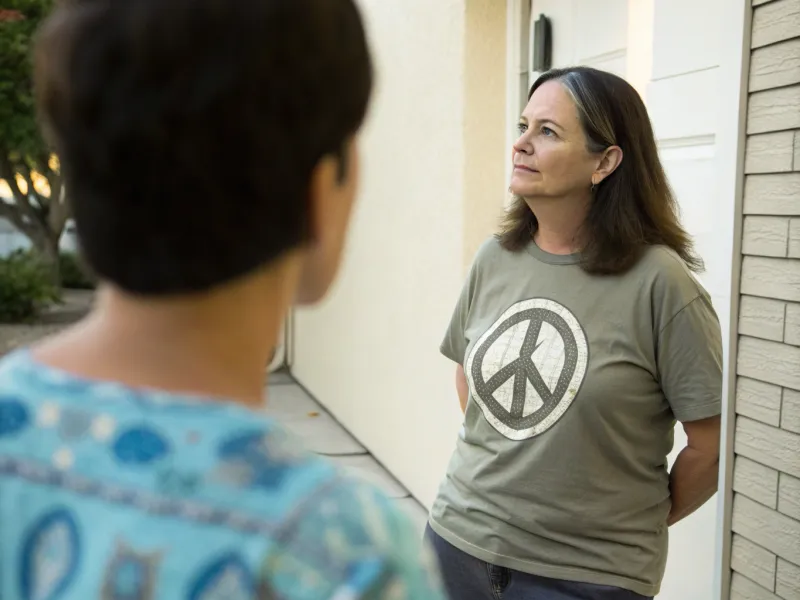
Extreme political differences can create a chasm between parents and their adult children. Imagine every conversation turning into a debate, where mutual respect is overshadowed by clashing ideologies. It’s a tension that permeates every interaction, making genuine connection difficult.
For some families, politics is deeply tied to identity, and diverging views can feel like a personal affront. This dynamic can create an environment of constant conflict, where understanding and acceptance are sacrificed for ideological supremacy. It’s a challenging landscape to navigate, often leading to estrangement.
Cutting ties is sometimes a way to preserve one’s peace and sanity. It’s about finding spaces where political differences don’t overshadow love and respect.
Esta decisión implica buscar comunidades que valoren la diversidad de pensamiento y fomenten el diálogo respetuoso, propiciando relaciones más sanas y libres de conflictos partidistas.
26. Trauma generacional
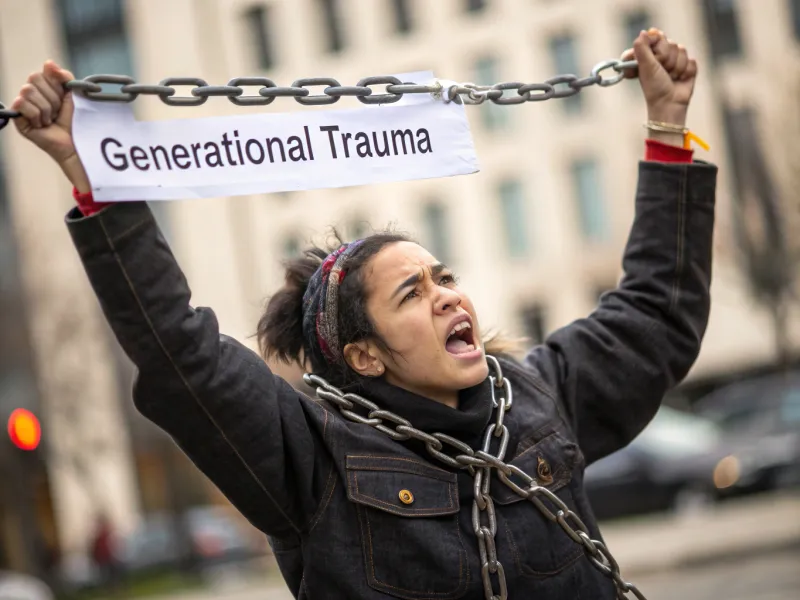
El trauma generacional es un ciclo de dolor que se transmite de padres a hijos. Imagínese heredar un legado de dolor y disfunción, donde las viejas heridas nunca se curan. Los padres que perpetúan este trauma a menudo lo hacen inconscientemente, sin darse cuenta del impacto en sus hijos.
This cycle can create an environment filled with unresolved issues, where past hurts overshadow the present. It’s a legacy that shapes family dynamics and individual identities, often leading to feelings of helplessness and frustration. Over time, the weight of this trauma can become unbearable, prompting a need for change.
Cutting ties is a courageous step towards breaking the cycle of trauma. It’s about creating a future that’s free from the shadows of the past. This decision often involves therapy and self-reflection, building new patterns of behavior and understanding that pave the way for healing and growth.
27. Traiciones legales o financieras

Las traiciones legales o financieras pueden destrozar la confianza y dejar profundas cicatrices. Imagínese descubrir que las personas en las que más confiaba han abusado de su confianza en beneficio propio. Los padres que cometen este tipo de traiciones suelen desdibujar los límites de la lealtad y la responsabilidad familiares.
These betrayals might involve financial manipulation, fraud, or unfair legal practices, such as contested wills. It’s a violation that can leave adult children feeling used and deceived. The emotional and financial damage can be profound, impacting their sense of security and trust in relationships.
Cutting ties is sometimes a necessary step towards rebuilding trust and stability. It’s about creating boundaries that protect against further betrayal and seeking environments that prioritize honesty and integrity. This involves legal advice and support from communities that understand the complexities of familial betrayal.
28. Falta de respeto a la autonomía

A lack of respect for autonomy can stifle personal growth and independence. Imagine every decision questioned or overridden by a parent who treats you like a perpetual child. It’s a dynamic that denies individuality and fosters resentment.
Parents who refuse to respect their child’s autonomy often do so out of a desire to protect or maintain control. This behavior can create a suffocating environment where personal choices are undermined, leaving the adult child feeling trapped and devalued.
Choosing to cut ties can be a way to reclaim control over one’s life. It’s about establishing boundaries and pursuing a path of self-discovery and growth. This involves seeking environments that nurture and respect individuality, allowing for the development of a strong sense of self.
29. Negativa a aceptar el cambio

A refusal to accept change can create a stagnant and frustrating family dynamic. Imagine growing and evolving, only to be pulled back by parents who resist any deviation from the status quo. It’s a tension between personal growth and familial expectations.
Parents who refuse to accept change often fear losing control or facing the unknown. This resistance can stifle their child’s development and lead to feelings of frustration and resentment. Over time, this dynamic can create an environment where progress is hindered by outdated beliefs and practices.
Cutting ties is sometimes a necessary step to embrace change and pursue personal growth. It’s about finding spaces that support and encourage evolution and change.
Esto implica la autorreflexión y la búsqueda de comunidades que celebren la diversidad y la adaptabilidad, fomentando una forma de vida más sana y dinámica.
30. When love isn’t enough

Sometimes, love isn’t enough to maintain a relationship marked by pain and dysfunction. Imagine loving someone deeply but knowing that staying connected only causes more harm. It’s a heartbreaking realization that love can’t fix every problem.
This dynamic often involves a history of unresolved issues that overshadow affection. The love might be genuine, but it’s tangled with hurt, resentment, and unmet needs. Staying in such relationships can prevent healing and personal growth, keeping both parties locked in a cycle of pain.
Choosing to cut ties is a painful but sometimes necessary step towards healing. It’s about recognizing that love doesn’t always equate to compatibility or healthiness.
Esta decisión suele implicar la búsqueda de terapia y apoyo para superar el duelo y las emociones encontradas, fomentando el crecimiento personal y un futuro lleno de relaciones más sanas y satisfactorias.
31. Emotional Parentification

Emotional parentification is a hidden burden that many adult children carry. Imagine growing up not just as a child, but as your parent’s emotional caretaker — their therapist, their confidante, their source of stability. When the roles are reversed, and you’re forced to meet emotional needs far beyond your years, it robs you of a carefree childhood.
This dynamic fosters deep exhaustion and resentment over time. It can also blur boundaries, making it difficult to form healthy adult relationships. The child, now grown, may struggle with guilt and identity confusion — caught between love and the desire to finally be seen as just that: a child, not a surrogate partner or parent.
Choosing to walk away is not about coldness or indifference. It’s about healing. It’s about letting go of a role that was never theirs to carry. By cutting ties, they reclaim their right to grow, to be nurtured, and to build a life centered on mutual care — not obligation.
32. Constant Undermining of Parenting Choices

There’s something uniquely painful about having your own parenting undermined by the very people who raised you. Imagine trying to raise your children with love, respect, and intention, only to have those efforts dismissed, mocked, or sabotaged by your parents.
Maybe it’s unsolicited advice laced with judgment, or outright defiance of your rules when the kids are with them. What might seem “harmless” to them feels like a constant attack on your credibility, your values, and your confidence as a parent.
When every interaction becomes a battle over how to raise your children, it chips away at trust. Some adult children choose distance — or even estrangement — not out of pettiness, but as a way to protect their own children from that same cycle of invalidation.
Setting boundaries and ultimately cutting ties can be an act of protection — not just for themselves, but for the next generation. It’s a stand for respect, consistency, and breaking toxic patterns.





